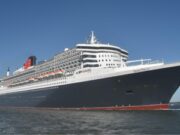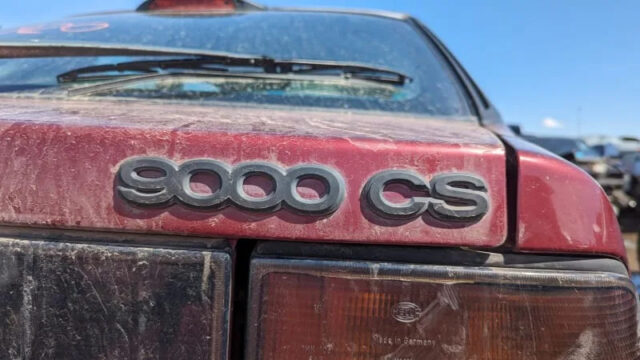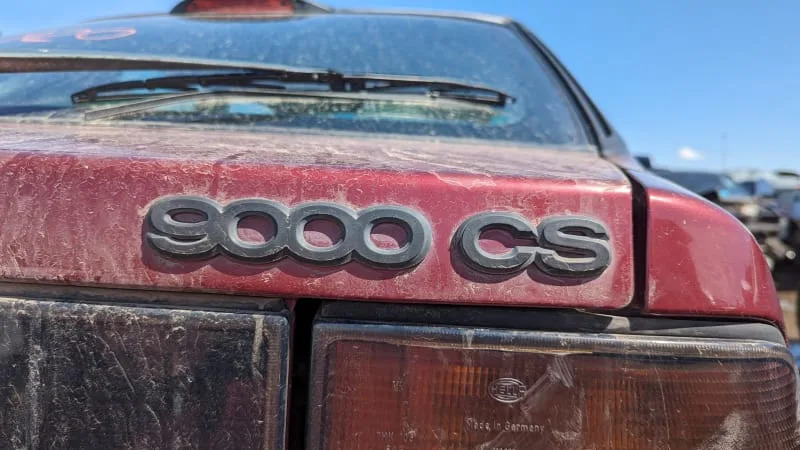With all the junkyard Saab history we’ve seen here, the Saab products born of the alliance between Trollhättan and Turin haven’t gotten their due. Shoehorned between— and among— the Triumph-engined 900 Classics and the GM-era Saabs, a Saab developed in partnership with Fiat was built. This was the 9000, and I’ve found a late-production example in a Denver boneyard.
Saab began working with the mighty Fiat Empire during the late 1970s, resulting in a rebadged and mildly Scandinavized Lancia Delta known as the Saab-Lancia 600. That car’s closest U.S.-market relative was the Fiat Strada, which lived on the same platform. The 600 didn’t sell well and disappeared without leaving much trace, but the Fiat-Saab dealings led to the development of a new platform cooked up by Saab and Lancia engineers, with Giorgetto Giugiaro in charge of the styling: the Type Four.
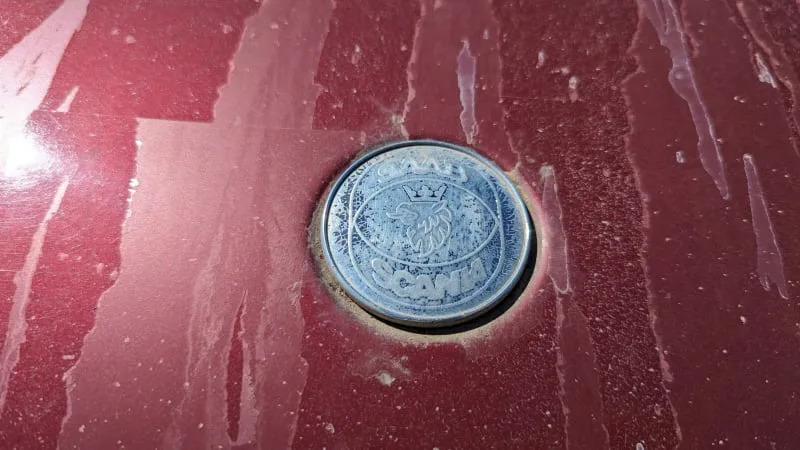
There were four car models built on the Type Four platform: the Lancia Thema, Fiat Croma, Alfa Romeo 164 and Saab 9000. The 9000 was the first to hit European showrooms, in 1985, and it made its North American debut as a 1986 model. We never got the Thema or Croma here, but the 164 eventually showed up in the United States as a 1991 model.
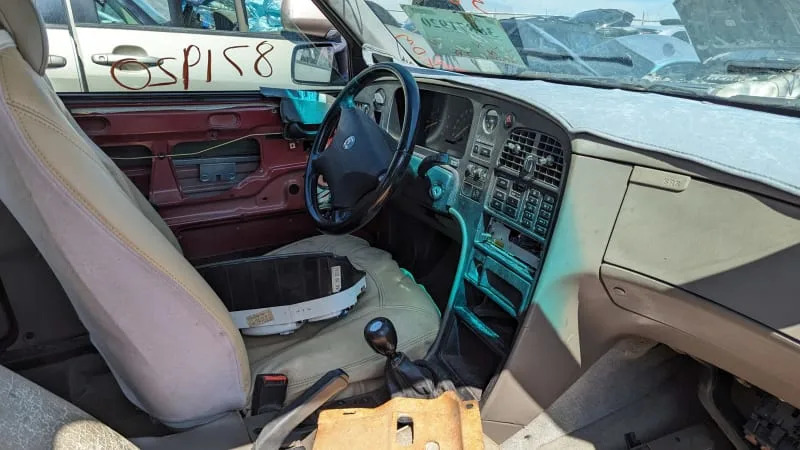
The 9000 was much roomier inside than the 900 (which was a mid-1970s design based on the late-1960s Saab 99’s chassis), though it didn’t weigh much more.
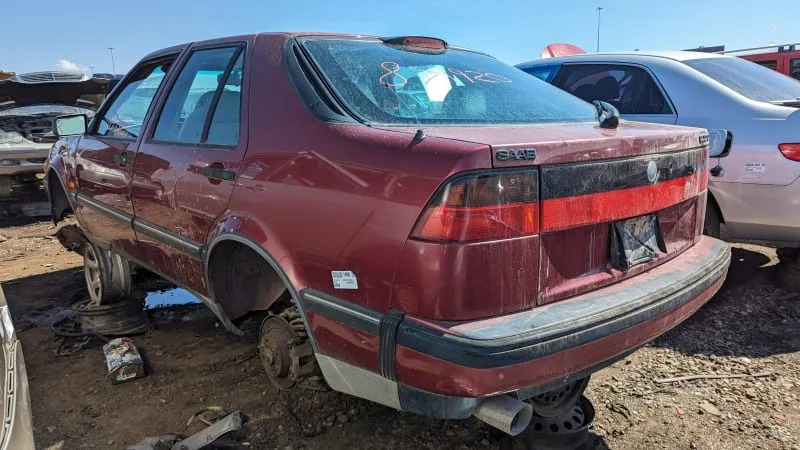
9000 production continued through 1998, after which the Opel-related 9-5 took over. 9000 sales overlapped with the similarly GM-derived New 900, beginning with the 1994 model year.
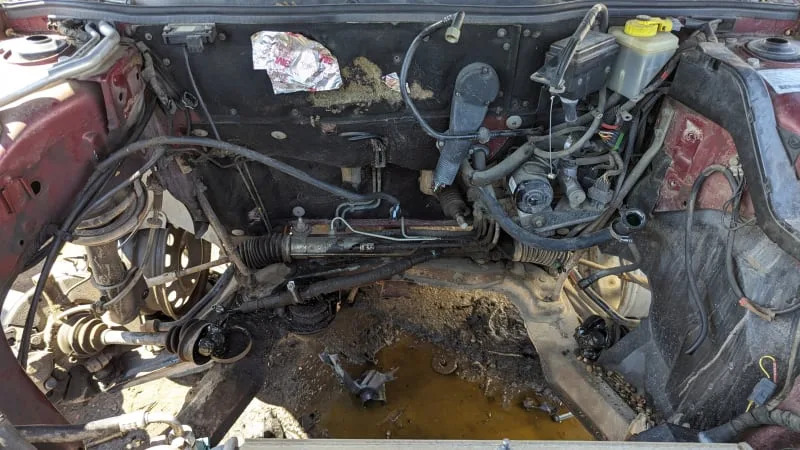
U.S.-market 9000s were available with naturally-aspirated and turbocharged versions of the good old Saab four-cylinder, with ancestry stretching all the way back to the Triumph Dolomite. This car had the 2.3-liter turbo engine (prior to a junkyard shopper removing it), rated at 200 horsepower and 238 pound-feet. For the 1995 through 1998 model years, American car shoppers could buy a new Saab 900 or 9000 with a 3.0-liter Isuzu V6 under the hood.
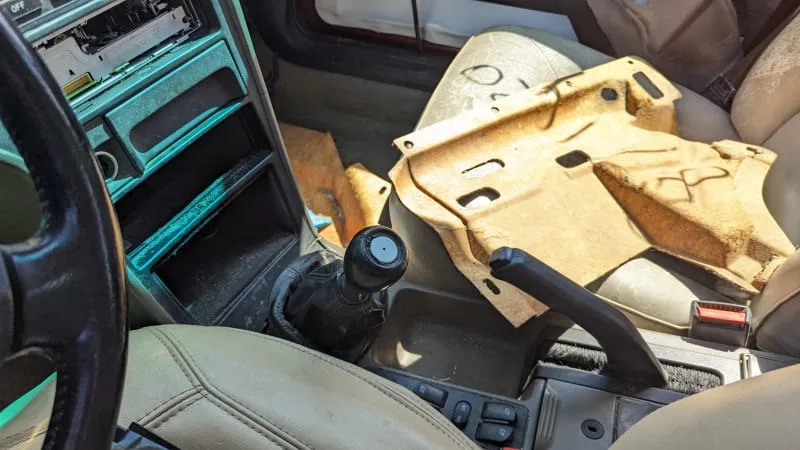
This car has the base five-speed manual transmission and not the optional four-speed automatic, as is proper for a Saab. If you insisted on the slushbox in your ’97 9000 with four-cylinder power, the price tag was $1,095 ($2,140 in 2024 dollars).
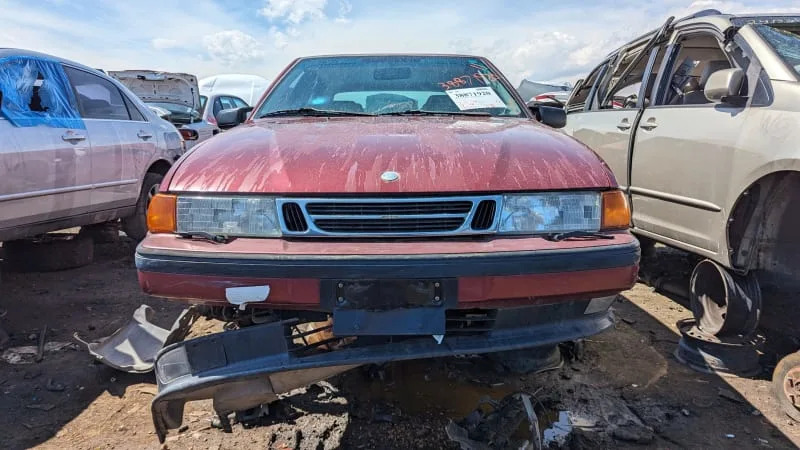
The MSRP for this car was $31,695, or about $62,221 in today’s money.
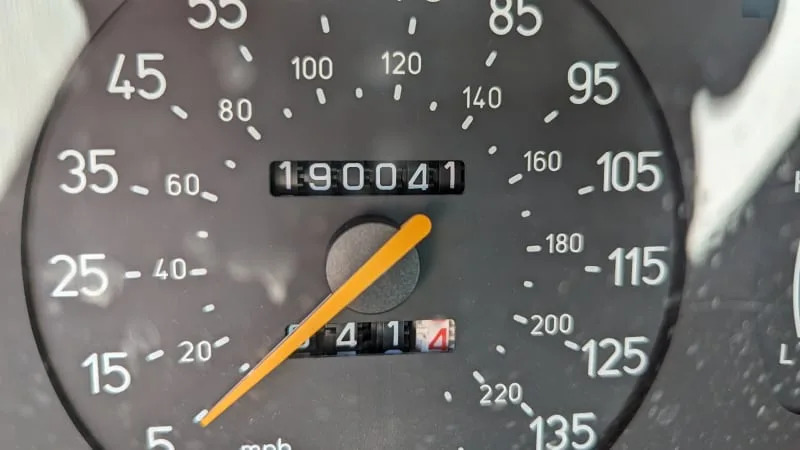
It didn’t quite reach 200,000 miles during its life. I have never found a discarded Saab showing better than 300,000 miles on its odometer; the best-traveled junkyard Saab I’ve documented was a 1986 900 with 290,699 miles. Meanwhile, I have written about eight retired Volvos that surpassed the 300k mark during their careers, including a 244 with well over 600,000 miles and a 740 Turbo that got within shouting distance of 500,000 miles. Make of this what you will.
The 9000 Aero for 1997 cost nearly ten grand more than the 9000 CS.
Why drive a car when you can pilot a Saab? That Bulgarian choral sound was still pretty trendy in late-1990s Britain.








